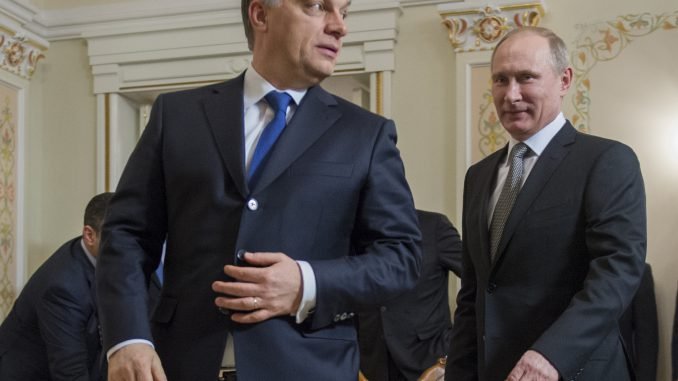
Hungary’s Prime Minister Viktor Orban, who surprised Europe several weeks ago by expressing his dislike for liberal democracy and his support for regimes in Russia and China, said that he was bringing together a coalition for better relations with the Kremlin.
Russia is widely criticized for violating international law and waging an undeclared war in Ukraine; however, while introducing the programme of his third government to the country’s ambassadors, Orban said that security issues were important for Poland and the Baltic countries, while Hungary’s attitude was different: first of all, Russia was a business partner and everything else – secondary things.
“The EU is moving away from Russia every day. Another question is whether a different scenario is possible. But one thing is clear: this is bad not only for Hungary but for the entire EU as well. We need to look for other members of the Union which would seek to slow down or stop this unfortunate process of separation,” said the prime minister of Hungary.
Orban, who is criticized for trampling with European values, for his rampant nationalism, fight against immigration, suppression of the freedom of the press and manipulation of the election law, which allowed him to retain a two-third majority in parliament, said that there was a need to look not at the values but at the fact that the sanctions and embargoes were destroying historical and unique business opportunities.
“Values are important because both NATO and the EU follow common values, but it does not mean that we have to communicate with countries outside our alliances differently than in accordance with their political cultures, institutions, democracy and other political attitudes. We have to consider what is consistent with Hungary’s national interests,” highlighted Orban.
Orban made much noise several weeks ago when he declared that the EU shot itself in the foot with imposing sanctions on Russia.
Lithuanian Foreign Minister Linas Linkevičius, arriving for the EU foreign ministers meeting in Brussels, retorted that it was better to shoot oneself in the foot than to let oneself be shot in the head – a reference to fears in the former Soviet republic over Russian assertiveness.
Hungary signed a 10-billion-euro credit agreement with Russia for an upgrade of its nuclear power plant. Slovakia and the Czech Republic stick to moderate position on Russia. However, Poland is among the most rigid anti-Kremlin critics. As a result, Orban acknowledged that the Visegrad Four could not make a united front to oppose sanctions.
Translated by Audra Šeputytė

Be the first to comment